In January 2023 GRIP launched a new research project on open access practices with its international partners from Latin America and Africa!

Reserved rights
The transition towards open access of many of the journals included in the globally dominant indexes such as Clarivate Web of Science and Scopus presents a relatively new and complex dilemma for researchers based in semi-peripheral (Global South) countries. The dilemma rests on the development of current open access publishing practices where publications are immediately accessible without subscription or costs to the reader, and where the cost of publishing is transferred to the authors. The costs, referred to as author page charges or APCs, are becoming increasingly onerous, placing financial strain on authors and their host universities or, worse, precluding them from participating the production and dissemination of their research findings in the global science communication system. Journals such as Nature, for example, have published their intention to charge up to 9,000 Euros for each article published.
A recent survey found that most researchers in Latin America and Africa hold a positive view of open access publishing. In the case of Africa, 78% strongly agreed, while in Latin America, 71% of respondents strongly agreed with the statement ‘Making research articles open access should be common scholarly practice’. From the perspective of science in the Global South, this situation is highly worrying because researchers may well be aware of the benefits that open access unlocks in terms of access but may not yet be fully aware of the risks. The example of Mexico is striking of the contradictions involved in the way Open Access is perceived. Mexico is the country of origin of three open access portals/indexation services with regional impact (Biblat, Latindex and RedALyC), which have contributed to defining good practices for the adoption of quality standards by scientific journals in the region ,; it has a law that introduces open access requirements and the development of a national repository (70% of researchers say they have published articles in open access. Nonetheless, it is a country where the scientific community has only 39% of scientists that consider open access to be a key aspect when publishing results. Moreover, one of the first Read&Publish agreements with commercial publishers was recently signed.
The general aim of the project is to understand the practices, perceptions and knowledge of the researchers in the Global South regarding scientific publications and open access. The proposed methodology is to perform an on-line Survey and generate productive cross-continental interactions, through an initial network of five countries: South Africa, Senegal, Brazil, Argentina and Mexico. Following on from an improved understanding of the publishing practices of researchers in the Global South, the project seeks to discuss and propose recommendations to stimulate non-commercial, scholarly open access publication.
Fernanda Beigel
 Fernanda is a Sociologist and PhD in Political and Social Sciences (2001). She pursued her postdoctoral studies at the Centre de Sociologie Européenne (EHESS, Paris). Chair of the Advisory Committee for Open Science at UNESCO (2020-2021) and current Chair of Argentina’s National Committee for Open Science. Advisor of the Latin American Forum on Research Evaluation (FOLEC-CLACSO). Principal Researcher at the National Council of Scientific and Technical Research (CONICET, Argentina), Head Professor at the National University of Cuyo (UNCuyo) and the Director of the Research Center on the International Circulation of Knowledge (CECIC) https://cecic.fcp.uncuyo.edu.ar/ Relevant scientific awards: Bernardo Houssay Prize (2003), CLACSO Essay Award (2004), Mention of Honour to Scientific Value-Argentine National Senate (2017).
Fernanda is a Sociologist and PhD in Political and Social Sciences (2001). She pursued her postdoctoral studies at the Centre de Sociologie Européenne (EHESS, Paris). Chair of the Advisory Committee for Open Science at UNESCO (2020-2021) and current Chair of Argentina’s National Committee for Open Science. Advisor of the Latin American Forum on Research Evaluation (FOLEC-CLACSO). Principal Researcher at the National Council of Scientific and Technical Research (CONICET, Argentina), Head Professor at the National University of Cuyo (UNCuyo) and the Director of the Research Center on the International Circulation of Knowledge (CECIC) https://cecic.fcp.uncuyo.edu.ar/ Relevant scientific awards: Bernardo Houssay Prize (2003), CLACSO Essay Award (2004), Mention of Honour to Scientific Value-Argentine National Senate (2017).
Fernanda is council committee member since 2021 and she is the Principal Investigator for this project.
Rigas Arvanitis
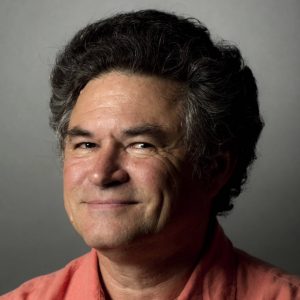 Rigas is research director of IRD, sociologist, member and director of Ceped (IRD-University Paris Descartes) and GRIP’s chair since 2020. He has field experience in Latin America (Venezuela and Mexico), China and Arab countries. He is a founding member of the Institut Francilien Recherche Innovation et Société and was its director (2015-2018). He was editor-in-chief (2007-2014) of the Revue d’anthropologie des connaissances. He was recently posted in Lebanon at the National Council for Scientific Research of Lebanon (CNRS-L) and was a visiting professor at the American University of Beirut (AUB) where he led a project on knowledge production in the Arab World with Dr. Hanafi. Previously, his work focused on technological learning in enterprises and the study of technology transfer, research and innovation policies and economic development. He is interested in research funding methods, the transformation of research systems in the South and forms of scientific collaboration
Rigas is research director of IRD, sociologist, member and director of Ceped (IRD-University Paris Descartes) and GRIP’s chair since 2020. He has field experience in Latin America (Venezuela and Mexico), China and Arab countries. He is a founding member of the Institut Francilien Recherche Innovation et Société and was its director (2015-2018). He was editor-in-chief (2007-2014) of the Revue d’anthropologie des connaissances. He was recently posted in Lebanon at the National Council for Scientific Research of Lebanon (CNRS-L) and was a visiting professor at the American University of Beirut (AUB) where he led a project on knowledge production in the Arab World with Dr. Hanafi. Previously, his work focused on technological learning in enterprises and the study of technology transfer, research and innovation policies and economic development. He is interested in research funding methods, the transformation of research systems in the South and forms of scientific collaboration
Leandro Rodriguez
 Leandro is a sociologist based in the Department of Sociology at Universidad Autónoma Metropolitana-Azcapotzalco (Mexico). He is a member of the National System of Researchers (Level II) at Consejo Nacional de Ciencia y Tecnología/CONACYT (Mexico) and has done research on international knowledge circulation with a focus on Latin America. He is also the founding editor-in-chief of the journal Tapuya: Latin American Science, Technology and Society, an open-access journal sponsored by UCLA and affiliated with the Latin American Association for Social Studies of Science and Technology (ESOCITE) and the Society for Social Studies of Science (4S). He is part of the team that will explore Mexican scholars’ perception of open-access scholarship.
Leandro is a sociologist based in the Department of Sociology at Universidad Autónoma Metropolitana-Azcapotzalco (Mexico). He is a member of the National System of Researchers (Level II) at Consejo Nacional de Ciencia y Tecnología/CONACYT (Mexico) and has done research on international knowledge circulation with a focus on Latin America. He is also the founding editor-in-chief of the journal Tapuya: Latin American Science, Technology and Society, an open-access journal sponsored by UCLA and affiliated with the Latin American Association for Social Studies of Science and Technology (ESOCITE) and the Society for Social Studies of Science (4S). He is part of the team that will explore Mexican scholars’ perception of open-access scholarship.
Marianne Noël
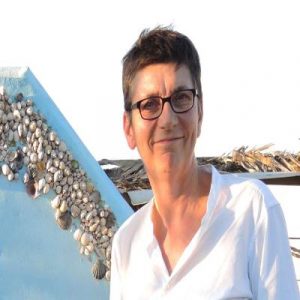 Marianne is a sociologist/historian trained in STS, with an original background (PhD) and industrial experience in chemistry. She is currently CNRS Research Engineer at Laboratoire Interdisciplinaire Sciences Innovations Sociétés (LISIS, UMR CNRS 9003), Université Gustave Eiffel. In her PhD work in sociology, she developed a socio-historical approach centered on periodicals and circulation of concepts in chemistry journals to understand the economic foundations of Open Access policies, including the mechanisms of APC.
Marianne is a sociologist/historian trained in STS, with an original background (PhD) and industrial experience in chemistry. She is currently CNRS Research Engineer at Laboratoire Interdisciplinaire Sciences Innovations Sociétés (LISIS, UMR CNRS 9003), Université Gustave Eiffel. In her PhD work in sociology, she developed a socio-historical approach centered on periodicals and circulation of concepts in chemistry journals to understand the economic foundations of Open Access policies, including the mechanisms of APC.
Membre du projet ERC Synergy NanoBubbles
Tatiane Pacanaro
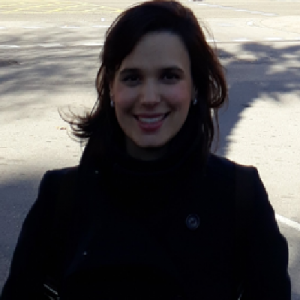 Tatiane is graduated in Social Sciences, is an Analyst in Science and Technology at CAPES — the agency in charge of evaluating research and graduate education in Brazil. There, she works at “Portal de Periódicos”, a Coordination that negotiates subscriptions to scientific journals. She is currently pursuing a PhD in Information Science at the Brazilian Institute of Information in Science and Technology (IBICT) in association with the Federal University of Rio de Janeiro (UFRJ). Tatiane will join the CEPED/Université Paris-Cité in 2023 to pursue research stay. Her topics of interest are: open science, open access, science policies, research evaluation system and asymmetries in the world scientific system.
Tatiane is graduated in Social Sciences, is an Analyst in Science and Technology at CAPES — the agency in charge of evaluating research and graduate education in Brazil. There, she works at “Portal de Periódicos”, a Coordination that negotiates subscriptions to scientific journals. She is currently pursuing a PhD in Information Science at the Brazilian Institute of Information in Science and Technology (IBICT) in association with the Federal University of Rio de Janeiro (UFRJ). Tatiane will join the CEPED/Université Paris-Cité in 2023 to pursue research stay. Her topics of interest are: open science, open access, science policies, research evaluation system and asymmetries in the world scientific system.
André Appel
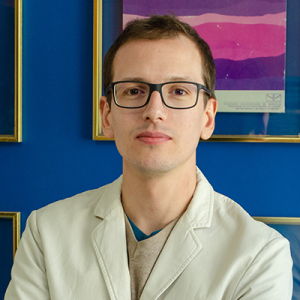 André is an Information Scientist working on topics such as open access scholarly journals, scholarly communication, and information management. He is an Adjunct Professor at the Federal University of Rondônia (Unir), and a Researcher at the Brazilian Institute of Information in Science and Technology (Ibict), in Brazil. He is willing to collaborate on the development of open access publication strategies, by collecting and providing data supporting the socioeconomic sustainability of open access publication models, focusing on the Diamond OA route. To know more about his qualifications and publications, please visit his ORCID profile.
André is an Information Scientist working on topics such as open access scholarly journals, scholarly communication, and information management. He is an Adjunct Professor at the Federal University of Rondônia (Unir), and a Researcher at the Brazilian Institute of Information in Science and Technology (Ibict), in Brazil. He is willing to collaborate on the development of open access publication strategies, by collecting and providing data supporting the socioeconomic sustainability of open access publication models, focusing on the Diamond OA route. To know more about his qualifications and publications, please visit his ORCID profile.
Ismael Rafols
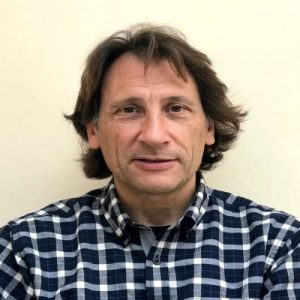
Ismael is a senior researcher at the Centre for Science and Technology Studies at Leiden University, where he leads the UNESCO Chair on Diversity and Inclusion in Global Science. He works on science policy developing novel approaches to S&T indicators, using mixed-methods for informing evaluation, foresight and research strategies.
Francois van Schalkwyk
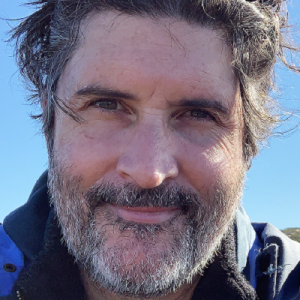 Francois is a postdoctoral research fellow at the Centre for Research on Evaluation, Science and Technology (CREST) at Stellenbosch University, South Africa. His research interests include higher education studies, science communication and open science as part of an overarching interest in the social dynamics of knowledge production.
Francois is a postdoctoral research fellow at the Centre for Research on Evaluation, Science and Technology (CREST) at Stellenbosch University, South Africa. His research interests include higher education studies, science communication and open science as part of an overarching interest in the social dynamics of knowledge production.
Matias F. Milia
 Matías is a sociologist and postdoctoral affiliate at the University of Notre Dame, studying the entanglements of data infrastructures, environmental challenges, knowledge circulation, and future-oriented research from a translational STS perspective. He’s a Research Fellow of the Open Environmental Data Project (OEDP) and has research experience in Argentina, Ecuador, France, and Mexico. Matías serves as a member of the Scientific Committee at the Latin American Network for Economics of Learning, Innovation, and Competence Building Systems (LALICS). Currently, he’s a researcher at the SEEKCommons initiative, exploring Open Science’s contribution to socio-environmental research and knowledge dissemination with a distributed network of STS scholars, OS practitioners, and socio-environmental researchers.
Matías is a sociologist and postdoctoral affiliate at the University of Notre Dame, studying the entanglements of data infrastructures, environmental challenges, knowledge circulation, and future-oriented research from a translational STS perspective. He’s a Research Fellow of the Open Environmental Data Project (OEDP) and has research experience in Argentina, Ecuador, France, and Mexico. Matías serves as a member of the Scientific Committee at the Latin American Network for Economics of Learning, Innovation, and Competence Building Systems (LALICS). Currently, he’s a researcher at the SEEKCommons initiative, exploring Open Science’s contribution to socio-environmental research and knowledge dissemination with a distributed network of STS scholars, OS practitioners, and socio-environmental researchers.
À lire aussi

28th November 2024, presentation of the book: Pescando guindas en la siesta
Hebe Vessuri, a member of GRIP's Scientific Council, presents her latest book the 28th November 2024: Pescando guindas en al siesta, editorial SB. © Reserved rights Hebe Vessuri, presents her latest book the 28th November 2024:...

27th November, international symposium SEOSA
The international symposium Societal engagement of organizations and sustainability in Africa: catalysts for resilience in theface of multiple crises? SEOSA will take place the 27th November 2024 in Tunis. © Reserved rights The...
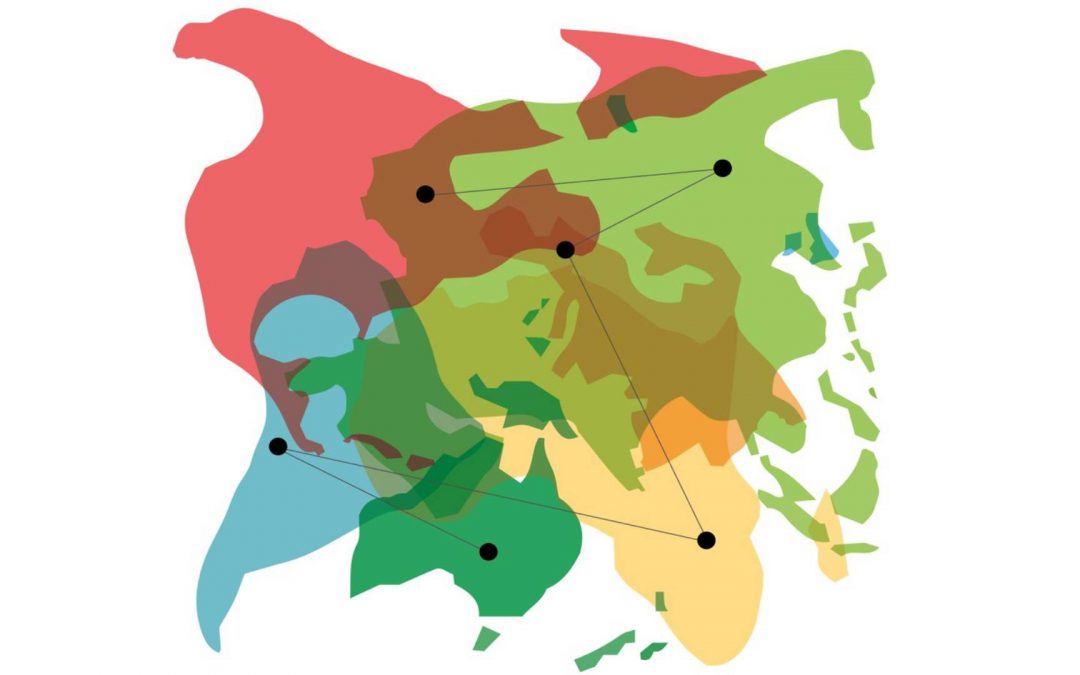
26th and 27th November -24 hours of the same world
24 hours of the same world: what has changed with globalization over the past 25 years? Tuesday November 26 to Wednesday November 27, 2024. The event will end up with a musical intervention and a cocktail ! © Dix-milliards-humains...

CAHIER GRIP : SEMANTIC MAPPING
GRIP has just published its second cahier of SEMANTIC MAPPING. This booklet is the result of work begun in 2021. We're proud to share it with you! © Reserved rights GRIP has just published its second cahier of SEMANTIC MAPPING. This...
